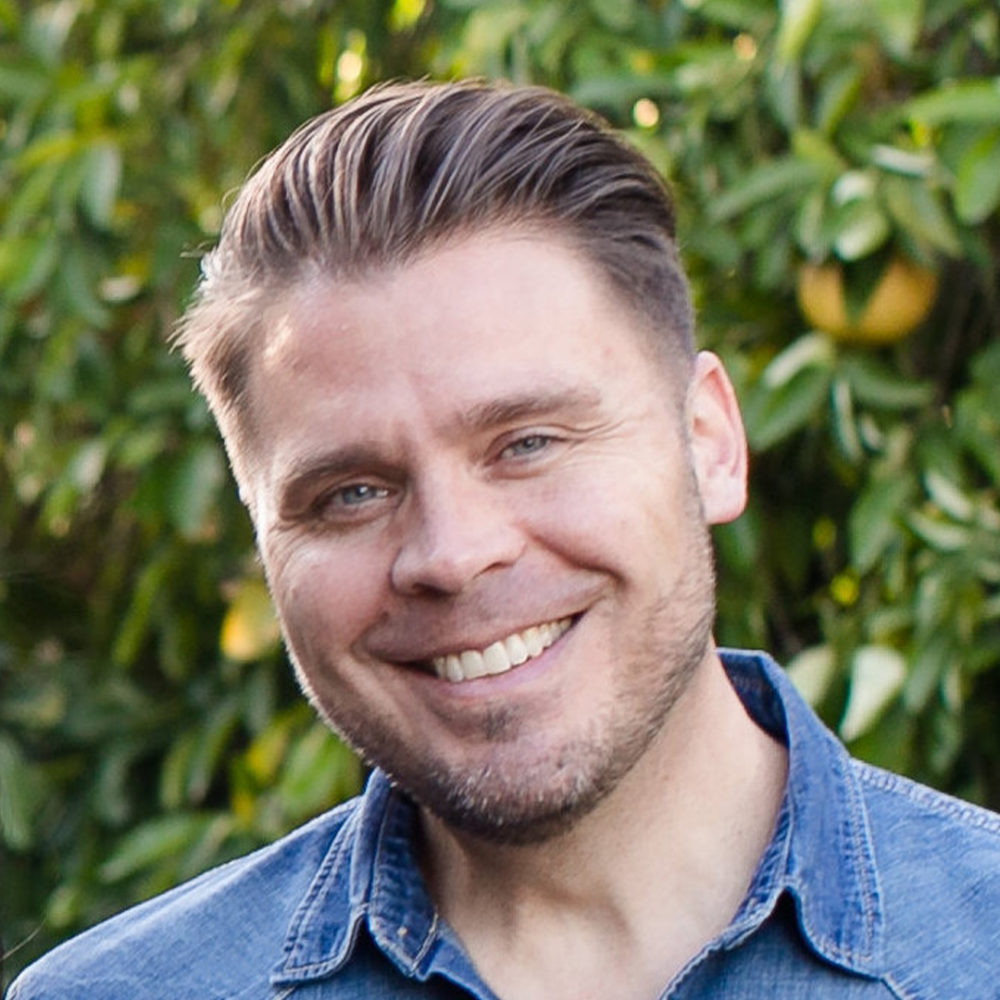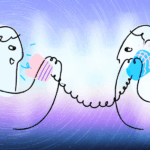
John Hansen
John Hansen is the lead pastor of Centerpoint Church in Murrieta, California. He previously served as a missionary in Asia for several years.
by John Hansen
Lying. Materialism. Lust. Pride. Porn. Hatred. Gossip. Adultery. These words (and others like them) describe experiences in which many people we know either openly or secretly engage. They may even express areas where some of us struggle personally, even if we’d rather not admit it. But at the same time, the Scriptures, and even the words of Jesus, portray us with prophetic promise: more than conquerors, a new creation, child of God, citizen of heaven, saint, salt, light. These words describe anyone who has put their faith in Jesus Christ as Savior and Lord! And yet, there is such a contrast between these descriptors and the known and often unacknowledged reality of what a person may wrestle with.
The prophetic tension of the already and the not yet is seen as clearly in the struggle for righteousness as it is anywhere else.
Step into what’s right and out of the shame.
As believers, we receive the gift of positional righteousness when we are born again. And after that, our practical righteousness is a matter of the choices we make, empowered by the grace of God and obedience to the leading of the Holy Spirit. As an aspect of our discipleship, we must embrace the positional righteousness that is already ours in Christ Jesus, and fight for practical righteousness in Christ to any degree we have not yet attained. We need to embrace the invitation of God to step further into the righteousness He calls us to — and out of the shame and shadows of sin still secret.
The problem is, if we’ve been around the church long enough, we’ve discovered that there’s a game we play. Instead of living out the scriptural imperative to confess our sins to one another that we may be healed (James 5:16), instead of acknowledging the tension between our positional righteousness and our practical lack thereof, we play pretend. We pretend a righteousness that isn’t fully there. We offer just enough honesty so as to come across as sincere, but not nearly enough that we might actually be exposed. Then — instead of finding healing, freedom and growth in holiness — we find further shame and guilt, and we end up even further from the practical righteousness to which we are called.
A few days ago, I got a text message from John, a brother in our church. He said, “I am celebrating three years of sobriety from sexual sin, and I want to thank you and the leaders of Centerpoint for creating a place where I could heal and be set free. Thank you for bringing Ted Roberts to CP!”
These messages are the kind of thing that keeps a pastor going. John is now the leader of our Conquer and Seven Pillars men’s groups. Almost four years ago, we hosted Ted Roberts to speak at our church (his actual name is Benjamin Theodor Roberts, and, yes, his parents were Free Methodists as was Ted for a while). Ted is the founder of Pure Desire Ministries, and we use his resources to help Christian men get free from sexual sin. At the core, though, the Pure Desire resources call for abandoning the typical Christian charade of pseudo-holiness in favor of the real thing.
To step into what is truly right, we have to recognize the prison of shame for what it is — and step out of it. The Pure Desire resources provide just one example of embracing vulnerability, transparency and confession of sin with accountability as a path into real righteousness. John Wesley set this course for us long ago. The “Holy Club Questions” would help any number of us to get real with our lack of righteousness.
“Do I disobey God in anything?” That query would be a great place to start, and that’s just one of the 22 questions. To take it further, think of one of Wesley’s holy band meeting questions: “What known sins have you committed since our last meeting?” Wesley’s quest for holiness assumed that there would likely be sin to confess. Wesley seemed to assume that a proper path of stepping into righteousness necessitated a stepping out of the shame through honest acknowledgment of sin.
Embrace — and eschew — our history.
About 15 years ago at a funeral reception, I met with a woman who was in her mid 70s. She shared about her life and faith over a cup of tea. She spoke fondly about camp meetings she had attended and about her love for the old hymns. She also talked with bitter and biting tones about her disdain for the “new music,” how she couldn’t stand her new pastor, how she had been wronged by the leaders of the women’s ministry, and how she was still upset that they had also canceled the bell choir without her input, among other things. I asked her about whether her anger about these things was something she might need to pray through more, and whether she might need to both extend and ask for forgiveness. She said, “Oh, I don’t need to do that. I’ve been entirely sanctified, and I don’t sin anymore, and I haven’t for nearly 50 years.”
I hardly knew how to respond!
Our Free Methodist history includes wonderful seasons in which personal holiness was deeply affirmed. As a result, it is clearly etched into the very fabric of our ministry family as a key part of who we are. At the same time, some of our past includes a fervor for righteousness that took some of us into a skewed belief or understanding of entire sanctification. This created an unrealistic standard of perfection that made no room for the humanness of sin, the beauty of confessing it, the glory of repentance, and the true power of God’s grace. Thankfully, as a movement, we have stepped back from the theological fallacy of sinless perfection. Sometimes our history is to be wholeheartedly embraced as something valuable to be continued. At other times, elements of our history must be eschewed so that we can move forward.
Love godliness, and hate wickedness.
There is a constellation of words linked to righteousness: godly, holy, virtuous, blameless, innocent. I personally stumble over the words blameless and innocent, because in any honest assessment, I’m neither, and I know it. I console myself with phrases scribbled into the margins of my Bible near verses like Psalm 19:13 and Proverbs 21:8, which state I am “innocent” … but only in Christ. I also know I’m called to something more than just positional righteousness. I’m called to fight for the practical righteousness that is possible for me in Christ.
Proverbs 15:9 states, “The Lord detests the way of the wicked, but he loves those who pursue godliness.”
Godliness is a great synonym for practical righteousness, because it speaks of a way of being. It is not a matter of checking the box on enough right behaviors — though they matter. Instead, the possibility of going after godliness has to do with becoming who we really are, prophetically speaking: creatures made in the image of God. There is so much grace in the invitation to pursue godliness. If godliness is something I am called to pursue, then maybe it is fair game for me to acknowledge ways in which I’m not there yet.
The psalmist writes, “Let those who love the Lord hate evil …” (Psalm 97:10). It is odd, at first blush, to think that love could result in hate. But the object to be hated is that which corrupts, befouls, harms and destroys. Evil and wickedness are the antithesis of righteousness, and their damage and destruction are to be loathed. If our love for the Lord is real and true, then that holy affection will frame for us a perspective on unrighteousness that allows us to see it for what it is: the cause and effect of separation from God. Because the love of God is so good, that which distances anyone from experience of His love is to be hated.
Build back the civic and social righteousness.
Speaking of being hated, we’ve just endured the most divisive election season in recent memory. As I write this article, the presidential election is still a month ahead, and the contention is rising to a fever pitch. At the time you’re reading this article, the results may be in — along with a likely increase of hatred across the spectrum. If “your” candidate won, there will invariably be a continued sense of that person and his supporters — including you — being despised. If “their” candidate won, you may be the one struggling to contain your own revulsion and abhorrence.
The maelstrom of negativity and rage has not been limited to the election. As the coronavirus pandemic continues, unbridled assaults are regularly being mounted against those who support and engage in the wearing of masks — and against those who do not. People continue to allow themselves to become totally unhinged with vitriolic fervor toward those who take the threat of COVID-19 seriously — and toward those who do not. Masses of the American people are absolutely untethered to any compassion or empathy in their response to those who want to take a stand regarding racial tension and inequity — and toward those who do not. Whole segments of the population are unleashing destructive force against those who support law enforcement officers — and against those who do not. In short, we have become a society broken and divided by a near total loss of basic civic and social righteousness.
We cannot allow ourselves to be so deluded as to think God’s concern for righteousness is limited to our personal morality. When the prophet Amos gave voice to the preferred future God envisions for humanity, it looked like something far-reaching: “But let justice roll on like a river, righteousness like a never-failing stream” (Amos 5:24). This was a cry for righteousness to flow into political engagement, rulership, civic engagement, leadership and the very fabric of social structure. We need to see this vision realized now as much as ever before, but it must be chosen.
We may need to consider relationships that we’ve damaged or ignored through a prioritization of our preferences and opinions. If we want to see righteousness return to the civic and broad societal sphere, maybe we ourselves need to be the ones to return it. If we’ve advanced our opinions about candidates, masks, and responses to the pandemic at the expense of relationships and kindness, we need to make amends. If we’ve opted over the last few months for an unfettered expression of condemnation for people with views that differ from ours instead of seeking to understand where others are coming from, we need to rectify that.
We need to build righteousness back into the civic and social environment of our day. We do that by actively listening to people, by choosing empathy, and by refraining from vilifying those who come to different conclusions. We do it by holding our own convictions with resolution wrapped taut with love. Yes, we must be free to express our own deeply held convictions, but we must express them in a way that is tempered by consideration and compassion (and even a measure of affirmation where possible).
Maybe “those Democrats” do have some valid perspectives, and it could be a form of righteousness to say so. Maybe “those Republicans” do have some meaningful proposals, and it could be very godly to express that. Perhaps “those BLM-ers” have a warranted heart cry, and it could be an evidence of holiness to let it be heard. It could be possible that those “behind-the-blue types” — who honor and support police officers — have good reason to do so, and it would be a virtue to give voice to that. We know that our great hope is in that “new earth, where righteousness dwells” (2 Peter 3:13). But that does not absolve us of the calling of God for us to do all we can to seek to establish that righteousness here and now to whatever degree possible.
Engage in the right pursuit.
In 1 Timothy, there is a warning regarding wickedness and evil and also an injunction for Timothy — and any woman or man of God — to flee from wickedness: “But you, as a person dedicated to God, keep away from all that. Instead pursue righteousness, godliness, faithfulness, love, endurance, and gentleness” (6:11 NET). There is a goodness and beauty that we are meant to go after. The absence of this pursuit creates all kinds of problems and does all kinds of damage to ourselves and to others.
There are categories of righteousness — physical, relational, mental, verbal, spiritual, financial and societal. In fact, all facets of life offer an opportunity for actual righteousness. But there is no “spiritual autopilot” that will take us there. We must acknowledge, “We’re not there yet, but we’re heading there still!”
We must decide each and every day to exercise this glorious free will that we have to pursue righteousness. In every facet of life, we can pursue selfish ends or loving ones. We can pursue physical pleasure at the expense of godliness. We can pursue lying and gossiping at the expense of holiness. We can pursue materialistic exploits at the expense of righteousness. Or we can determine to live by the Spirit’s leading and choose to pursue righteousness at the expense of lovelessness and shame. Oh God, help us to engage in the right pursuit.
Jesus said, “Blessed are those who hunger and thirst for righteousness, for they will be filled” (Matthew 5:6). Normally we do not think of hunger and thirst as blessings. We consider them conditions to be immediately ameliorated. In a sense, maybe that is exactly what Jesus has in mind. After all, the purpose of hunger or thirst is not merely to experience the sensation of being parched and famished. The purpose of hunger and thirst is to provoke or motivate action that will satisfy the need. Jesus is, in fact, envisioning the blessing that will come into the lives of any of us who would take action to go after a lifestyle of practical righteousness or godliness. To that end, may we wake up to the glory and goodness Jesus has envisioned for us — and boldly determine that we’re heading there still! +

John Hansen
John Hansen is the lead pastor of Centerpoint Church in Murrieta, California. He previously served as a missionary in Asia for several years.









